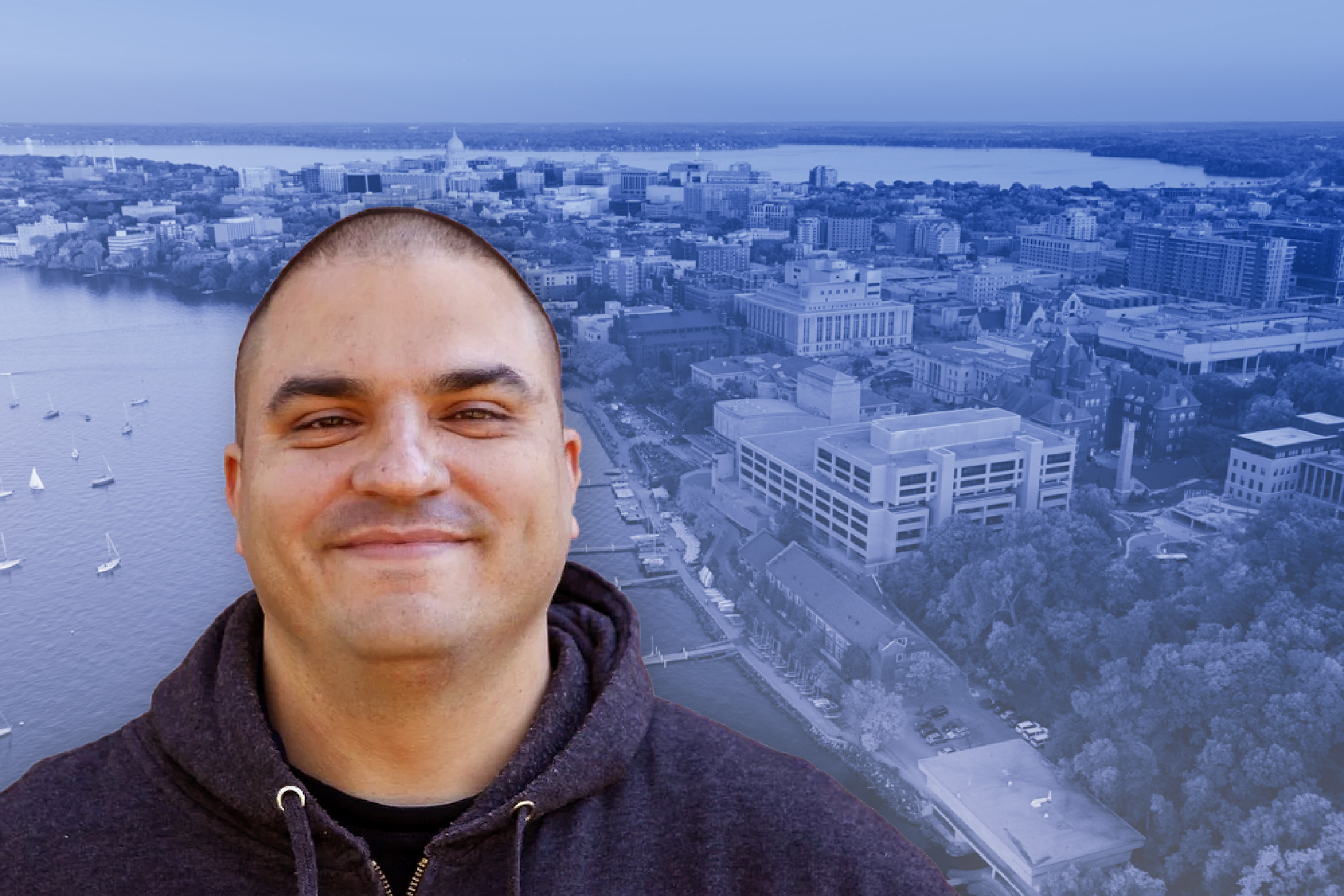Building Better Cities for Humans
-
-
Slice of MIT
Filed Under
Recommended

Raised in low-income housing, Justice Mya Castañeda MCP ’13 likes to point out that a student with “wet feet and an empty stomach” has very little chance of learning in school, no matter what the teacher is doing.
It’s a subject he knows a lot about. Castañeda spent his childhood moving from place to place in Madison, Wisconsin. By 13, he was fending for himself. “Obviously, when you’re 13, you don’t have any way to make money*. Any way you’re making income is illegal,” Castañeda says.
That’s why today Castañeda is working to give others a better start in life as executive director of Common Wealth Development, a community development organization in Madison.
As a youth, Castañeda had multiple run-ins with the juvenile justice system and very nearly went to prison when he was 18; he was arrested after a high school fight. “Sitting in jail, I remember that first night being really afraid,” he says.
Fortunately, the charges were dropped and Castañeda managed to graduate high school with a 1.46 GPA. He worked briefly in construction and then, determined to escape Madison at the time, he joined the US Marines.
Suddenly, Castañeda had food, shelter, and security—the stability he needed to build his future. “The military gave me a sense of structure,” says Castañeda, an Iraq War veteran.
Healthy housing is essential. If you don’t have it, you won’t go anywhere.
It also provided free tuition, so Castañeda took a class in his free time, earned an A, and kept going. He earned his associate’s degree from Central Texas College and then a bachelor’s degree in urban studies and planning from the University of California San Diego.
While in San Diego, Castañeda assisted in a high school math class and became fascinated by the factors beyond the classroom that influence student success. He asked himself: “What is the infrastructure necessary to teach someone math?” To investigate, after leaving the Marines he went on to get a master’s degree in policy, organization, and leadership studies from Stanford’s Graduate School of Education. Then he got his master’s in city planning from MIT, where he focused on housing policy and community and economic development.
He's still working on getting his PhD in urban and regional planning—from the University of Wisconsin-Madison—but through all his studies and life experience he has come to believe that housing is the most important first step to better educational and life outcomes for children.
“In a car, the wheels are not the most intricate or complex part. But without the wheels you’re not going to go anywhere,” he says. “Healthy housing is essential. If you don’t have it, you won’t go anywhere.”
This principle drives Castañeda in his work at Common Wealth, which aims to build healthy neighborhoods on a foundation of good housing.
Housing should be designed and run “as if human beings matter,” Castañeda says, with light and space and beauty—which too often are not given due consideration in low-income housing. “Think about a child you care about absolutely falling in love with something—writing, cooking, whatever it is. What is that space like? If you’re in a space and can’t imagine anyone falling in love in it, why would you want to live there?” he says.
Common Wealth supports local neighborhoods with a rich variety of programs, including business incubators, jobs programs, and community-building events. But healthy housing for the underserved is central to the organization, which manages residences for about 500 low-income residents and has several projects in the works to increase the stock of affordable—and livable—housing in Madison.
“Moving around, nothing was stable. You had no certainty. Jail, for a lot of us that’s the first place you can be fed three times a day, put your head in the same place, have access to showers and provisions,” Castañeda says. It doesn’t have to be that way—and shouldn’t be, especially for children, he asserts. “Safety, security, and love for children is absolutely an imperative.”
* US regulations generally set 14 as the minimum age for employment.
Photo illustration by Gretchen Neff Lambert; portrait image courtesy of Justice Mya Castañeda; city image by Jeff Miller/UW-Madison







